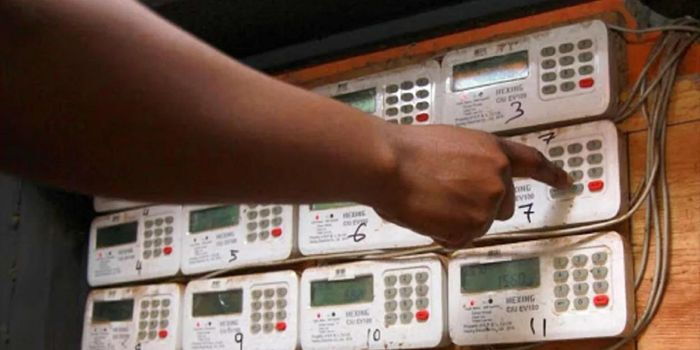Kenyans should prepare for an increase in electricity bills as the Energy and Petroleum Regulatory Authority (EPRA) has introduced a foreign exchange fluctuation adjustment that will take effect in March 2025. This move will lead to higher power costs for all consumers.
In an official notice, EPRA’s Director-General, Daniel Bargoria, announced that the adjustment would add an extra 80.70 cents per kilowatt-hour (kWh) due to the weakening of the Kenyan shilling against foreign currencies.
Why Are Electricity Prices Increasing?
EPRA explained that these changes align with Clause 2 of Part III of the Schedule of Tariffs 2023, which allows electricity prices to be adjusted based on exchange rate fluctuations.
“As per Clause 2 of Part III of the Schedule of Tariffs 2023, all electricity prices listed in Part II of the schedule will now include a foreign exchange fluctuation adjustment of plus 80.70 cents per kWh for all meter readings taken in March 2025,” read part of the statement issued by EPRA.
Currently, domestic consumers who use between 0 and 30 kWh per month (lifeline users) pay around Ksh12.23 per kWh.
Those consuming more than 100 kWh per month are charged Ksh19.08 per kWh. The new adjustment means consumers will now pay even more for the electricity they use.
The Impact of Currency Fluctuations on Power Costs
The forex adjustment is being introduced to compensate power producers and suppliers for the financial losses caused by fluctuations in the exchange rate.
Many independent power producers (IPPs) who supply electricity to the national grid recorded major losses due to the depreciating Kenyan shilling.
Data from EPRA indicates that independent power producers (IPPs) suffered the biggest exchange rate losses, totaling Ksh736.18 million.
In contrast, the Kenya Power and Lighting Company (KPLC) recorded an exchange gain of Ksh25.29 million, while the Kenya Electricity Generating Company (KenGen) reported a loss of Ksh12.78 million. The total exchange loss across all entities amounted to Ksh748.69 million.
How Much Power Was Generated?
In February 2025, Kenya generated and purchased a total of 1.12 billion kWh of electricity, excluding power exported to other countries. With the forex fluctuation adjustment now factored into the electricity bills, the cost of power for households and businesses will increase further.
Rising Concerns Over Expensive Electricity
This announcement comes at a time when Kenyans are already struggling with high electricity costs due to inflation, increased fuel prices, and other economic challenges. The latest adjustment is expected to impact both residential and industrial consumers, making it even harder to keep energy costs stable.
Adding to the cost burden, EPRA also revealed that the Water Resource Management Authority (WRMA) Levy will increase by an additional 1.28 cents per kWh for all meter readings taken in March 2025. This means electricity bills will rise even further.
Consumers are now left bracing for yet another hike in power prices, raising concerns about the overall cost of living and the impact on businesses that heavily rely on electricity.
Join Gen z and millennials TaskForce official 2025 WhatsApp Channel To Stay Updated On time the ongoing situation https://whatsapp.com/channel/0029VaWT5gSGufImU8R0DO30


